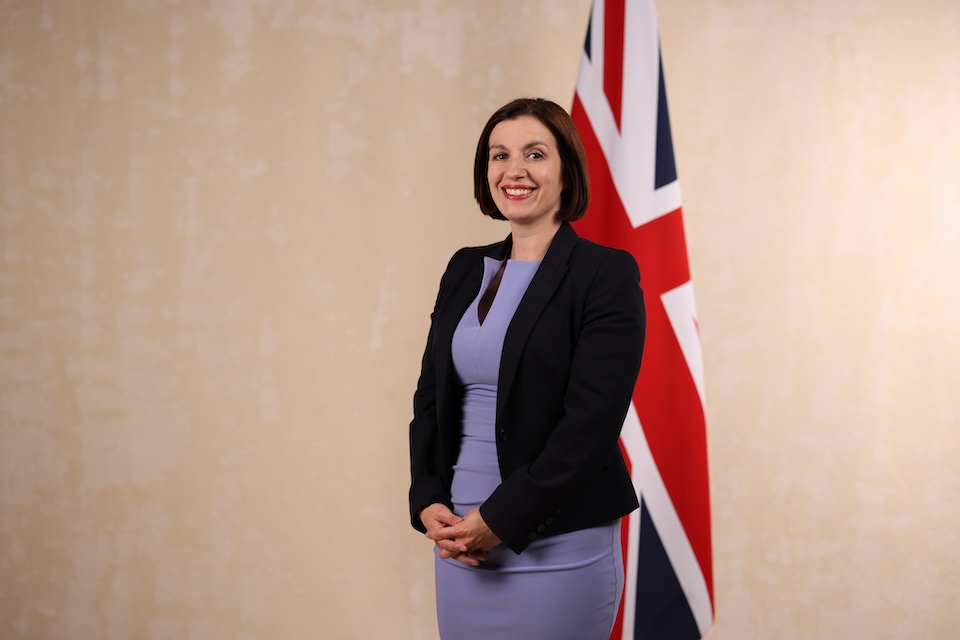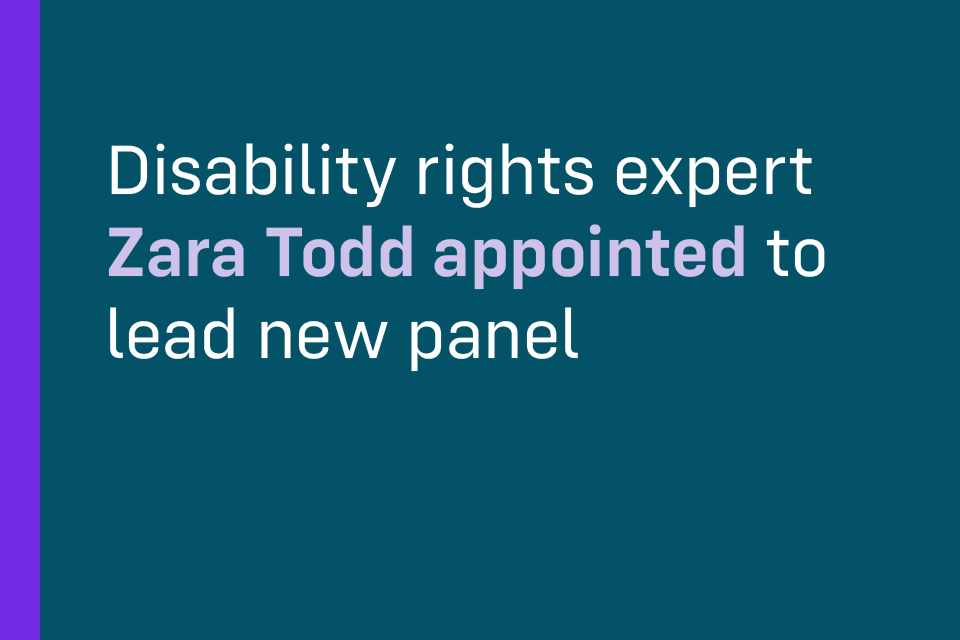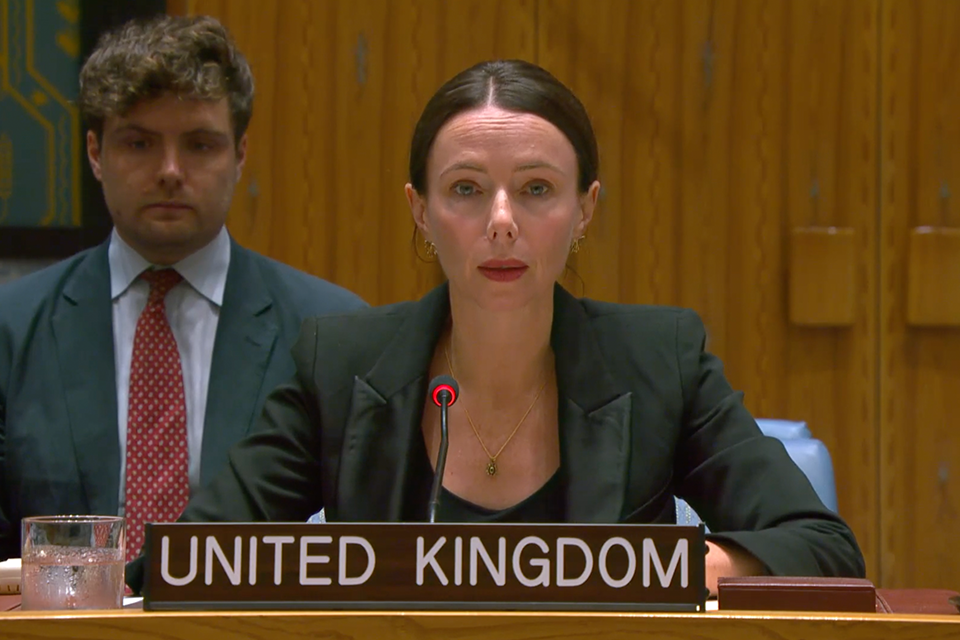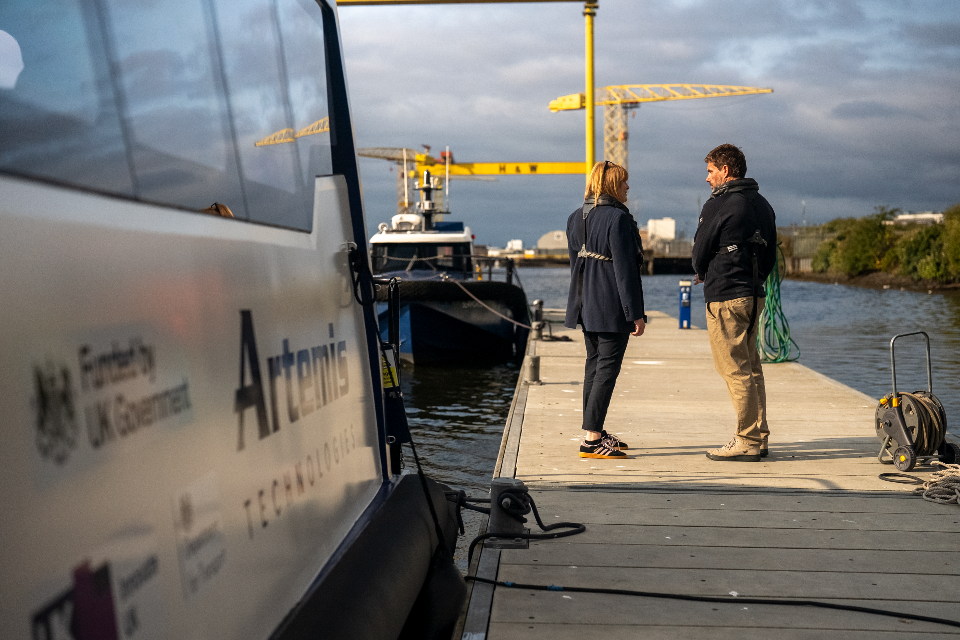Hello everyone, thank you so much for being with us today.
And thank you to everyone who has worked so hard to put today together.
How wonderful it is that we can meet here at home in the North East!
I grew up not seven miles from here. Brendan Foster could have run it in half an hour on a good day.
And it’s lovely to be hosted here at the Stadium of Light.
A great location to discuss where we can help every child shine.
Early years education is vital to that.
To helping every child shine at school, to making sure they all have an equal shot at success.
To building a strong and fair society.
That journey begins early.
But right now, I think we all know it’s not working as it should.
You’ll know that at the end of reception we measure the share of children reaching a good level of development.
Can they communicate properly? Are they doing well socially, emotionally, physically? Are they getting to grips with numbers and words?
It reflects how well families are getting their children ready for school. And the effectiveness of early education.
This government’s Plan for Change sets a target of a record 75% of children reaching a good level of development.
On average, 2 in 3 children meet that already.
But new stats show that for children in need – children in social care, or facing other challenges – it’s 38%.
And for children on free school meals, it’s barely above half.
So, we have to ask ourselves, how can there be a fair race to success in our society when whole groups of children start so far behind?
And these gaps between backgrounds – they’re not shrinking, they’re growing.
They dig their nails in deep, and then they grow with the child.
40% of the disadvantage gap at age 16 is already there by age 5.
It breaks my heart that, for these children, here in our country, a quarter of the way through the 21st century –
background still means destiny.
It’s a national scandal.
Our story of a fairer society, the one we like to tell ourselves,
where every child has an equal shot at success,
where what counts is determination, not background,
talent, not privilege,
how hard you work, not how much your parents earn.
By failing these children at the start of their lives, we’re ripping up that story.
We’re saying that success isn’t for people like them.
As Secretary of State, it’s my mission to change that.
To give every child the best start in life.
To lay the foundations for a stronger and fairer society, right from the very start.
That’s where the biggest difference can be made,
that’s where my biggest priority lies,
and that’s where we’ll begin to break the link between background and success.
But you’ll be the first to tell me that to do that, we can’t wait until children reach school.
Because the years before, the earliest years of their lives, they are some of the most important.
For our children, and for our society.
From the day a baby is brought home from hospital.
Her start in life matters so much.
Because from her first day in this world, an invisible score is being kept, on the factors that will either hold her back or propel her forward.
Is her home stable, warm, loving?
Is there enough food in the fridge, enough money in the meter?
Does her family get the right support?
Are they able to devote enough time to play with her in the mornings,
to read to her in the evenings,
to share in the love and curiosity that will be the bedrock of her development?
And is she getting those crucial early opportunities to start learning?
Is there a great nursery at the end of the road?
With wonderful teachers that will share the right resources to help her shine?
The answers to all these questions, and many more, will shape more than her first few years.
They’ll mould her chances of success at school, her opportunities in life too.
And it’s bigger than that. If we zoom out, these are the issues that will define that stronger and fairer society we want to build.
Early years can be the driving force for the change this country needs.
New data out today from the Study of Early Education and Development is yet more proof of that.
Yet more proof that excellent early years education leads to academic success later on.
And yet more proof that the link is strongest for children from disadvantaged backgrounds.
The lower the family income, the higher the impact of early years.
And the bigger the opportunity to reach those children and change their path in life.
But I’m sorry to say that, at the moment, we’re missing too many of those opportunities.
Our early years workforce are heroes. They guide the youngest members of our society with passion, expertise and commitment.
But we need to back them by modernising our system, boosting family support and working together with parents and the sector.
Because far too many children are arriving for their first day in your schools simply not ready to learn.
A quarter not fully toilet trained.
A third can’t follow instructions.
Half can’t sit still.
A source of collective alarm for all of us as a society.
It holds those children back, of course.
But it holds the whole class back as well.
Teachers lose up to two and a half hours catching these children up.
Not per month.
Not even per week.
Two and a half hours per day.
Lost.
Precious opportunities, gone and not coming back.
Schools can be such a force for good. But they can’t do it alone. We need to make sure children are ready to go on day one.
So we’ve got to transform school readiness in our country.
In the year this government has been in power we’ve fixed the foundations and begun delivering the change children and parents need.
We’ve delivered the biggest ever uplift in early years funding for disadvantaged children.
It’s a system that backs parents too.
Because we are rolling out the entitlement to 30 hours of government-funded childcare, starting in September.
Putting up to £7,500 a year back in working parents’ pockets.
Before long, 80% of childcare will be government-backed.
And we’re forging ahead with our school-based nurseries. To deliver the places parents need, where they need them.
And to introduce children to school early on,
forming partnerships between early years settings and schools, exchanging knowledge and expertise to support children’s transitions into school.
I want to thank all the providers who are working with us to deliver the change families need.
And that includes the private, voluntary and independent providers, which I know will do an amazing job.
Like at Hindley Green Community Primary in Wigan, where the private provider is working to expand the school nursery.
And our free breakfast clubs are already rolling out in 750 early adopter primary schools too.
On top of that, last month I announced the biggest expansion of free school meal eligibility in England in a generation.
Children eating together, learning together, growing together. It’s good for behaviour, it’s good for attendance, it’s good for attainment.
But we know there’s much more to do.
Still so much we need to do.
We’ll soon publish our Best Start in Life Strategy.
Putting children’s outcomes right at the heart of government.
And delivering on our target to get 75% of children achieving a good level of development by age 5 will be front and centre.
But, like so much of our ambition, we can’t get there alone.
And alongside parents, schools and the whole early years sector, local government has a key role to play too.
I know many councils share our commitment to boosting the number of 5-year-olds reaching a good level of development.
And through this new strategy, we will embed targets for local government, in law.
This is too important. We’ve got to turn this around. And we can’t leave it to chance.
To drive the change we need, we’re starting early.
And that will include our reform of the SEND system.
Early intervention will be a core pillar of that reform. Identifying needs early, and working to support every child to achieve and thrive in the classroom.
But the transition from those early years into school is just as vital.
I see the wonderful work you are all doing to help children take their first steps into school.
Reception teachers go above and beyond, day after day, despite all the challenges, to set children off on the right foot.
But, if we’re honest – government just hasn’t taken reception year seriously enough in the past.
Rather than building a bridge between nursery and school, reception has fallen through the gap.
So just when children should be racing ahead, despite your best efforts, they end up treading water.
For too long, the first year has been the forgotten year.
So we’ve got to put that right.
That’s why reception year quality is one of the four national priorities for our new Regional Improvement for Standards and Excellence (RISE) teams.
It’ll form a key part of our universal offer to raise standards in all schools. We’ll identify and share great practice – just as we’re doing today through this conference.
And we’re developing a brand-new digital tool to support school and MAT leaders.
Modelled data on where the evidence suggests your school should be in terms of its overall Good Level of Development score.
It’ll show where schools are ahead, and where they need to catch up.
Reception is a time for children to begin finding their voice.
Language development really needs to click into gear.
And that’s why we’re continuing to fund the Nuffield Early Language Intervention – for the 11,000 schools already registered, and any primary school that wants it.
NELI helps spot and sort problems early, supporting more than 50,000 children a year.
It speeds up progress for all children.
But, again, the impact is strongest for disadvantaged children. They make 7 months of extra progress on language development.
For the others, it’s 4 months.
It’s fully funded for schools, and great value for money for government – a reminder that good interventions don’t have to break the bank.
The programme has worked wonders at Gillas Lane Primary Academy – just down the road from here in my constituency.
Gillas Lane serves a disadvantaged community. The share of children on free school meals is double the local average.
Many children arrive at the school behind with their language development, but NELI helps catch them up.
The data shows that children on the programme come on leaps and bounds in their speaking, listening and communications.
It’s making such a difference in their lives – that’s why we’re determined to back early language development across the country.
But we must match that with early writing skills too.
Because learning to write can unlock learning across the board.
It helps children begin to explore their thoughts on the page; it helps them begin to make their mark on the world.
But last year 174,000 children missed the early learning goal in writing.
Nearly three quarters of 5-year-olds with special educational needs are behind on writing.
Nearly half of 5-year-olds on free school meals are behind.
It’s a huge barrier to learning.
So next week my department will publish a new writing framework.
Practical support for teachers to build strong writing skills for children.
Where our language programmes will help children find their voice, our writing framework will help them write it down.
But we’ve got to start early on maths too.
Maths is the language of the universe, at the centre of our understanding of the world around us.
But for too many children it’s the language of fear and frustration.
And we can’t let a fear of numbers follow our children into adulthood.
So, we’re working with our partners to more than double the Maths Champions programme, reaching up to 1,800 more early years settings.
To give every child the best start in life,
to make sure every child can succeed in school,
we’ve all got to recognise our responsibilities.
As government we have ours. As school leaders you have yours.
And parents have responsibilities too.
To make sure their children arrive at school ready to learn.
Whether that’s their first day in reception, or the last day in year 11.
Our Best Start in Life Strategy will support parents to do just that – and to do much more for their children as they move into school and beyond.
Periods of transition are important – for children at school, and for our cities and country too.
The summer of 1997 was a summer of change. The UK had a new Labour government, and Sunderland had a new football stadium – the one we are in today.
Sunderland played their first game here on the 30th of July – against the Dutch team Ajax.
I’m reliably told it was a drab nil-nil.
Although my Sunderland-mad advisor Ben, who’s here today, insists I also point out that Sunderland won their first league match here two weeks later, beating Man City 3-1.
But at midnight the night before the Ajax game, Bob Murray, the chairman of Sunderland, released a statement announcing the name of the new stadium.
It was to be called the Stadium of Light.
Bob explained that for more than 150 years, right next door to where we are today, miners at Wearmouth Colliery carried with them a Davy Lamp to light the way through their dark working days.
The stadium was named for them.
In Bob’s words, it was to let ‘this light shine forever’ – a torch that ‘illuminates the way forward’.
That’s how I feel about education – lighting the way ahead. And it’s how the miners felt too.
That’s why the miners’ halls in my constituency down the road and across our region where they had libraries and newspapers.
Why so many of the banners they hoisted each year at the Big Meeting proclaimed the truth that knowledge is power.
They knew how crucial a good education today was to a bright future tomorrow.
So now is the time to revolutionise early years,
to light those lamps of learning, right from the start,
and to give each and every child the start in life they deserve.
Thank you.








